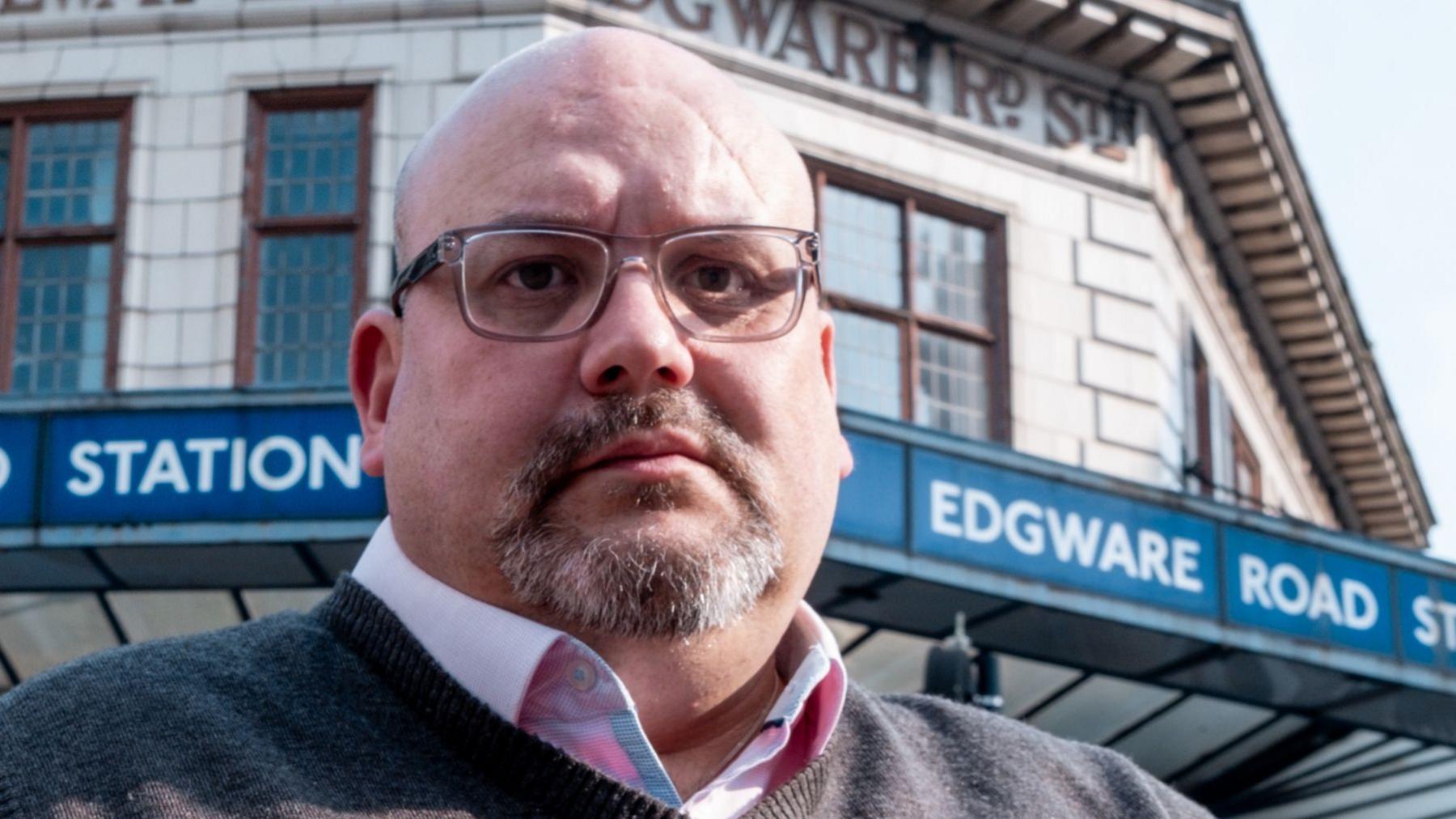7/7 bus driver: Olympic joy turned to barbaric day
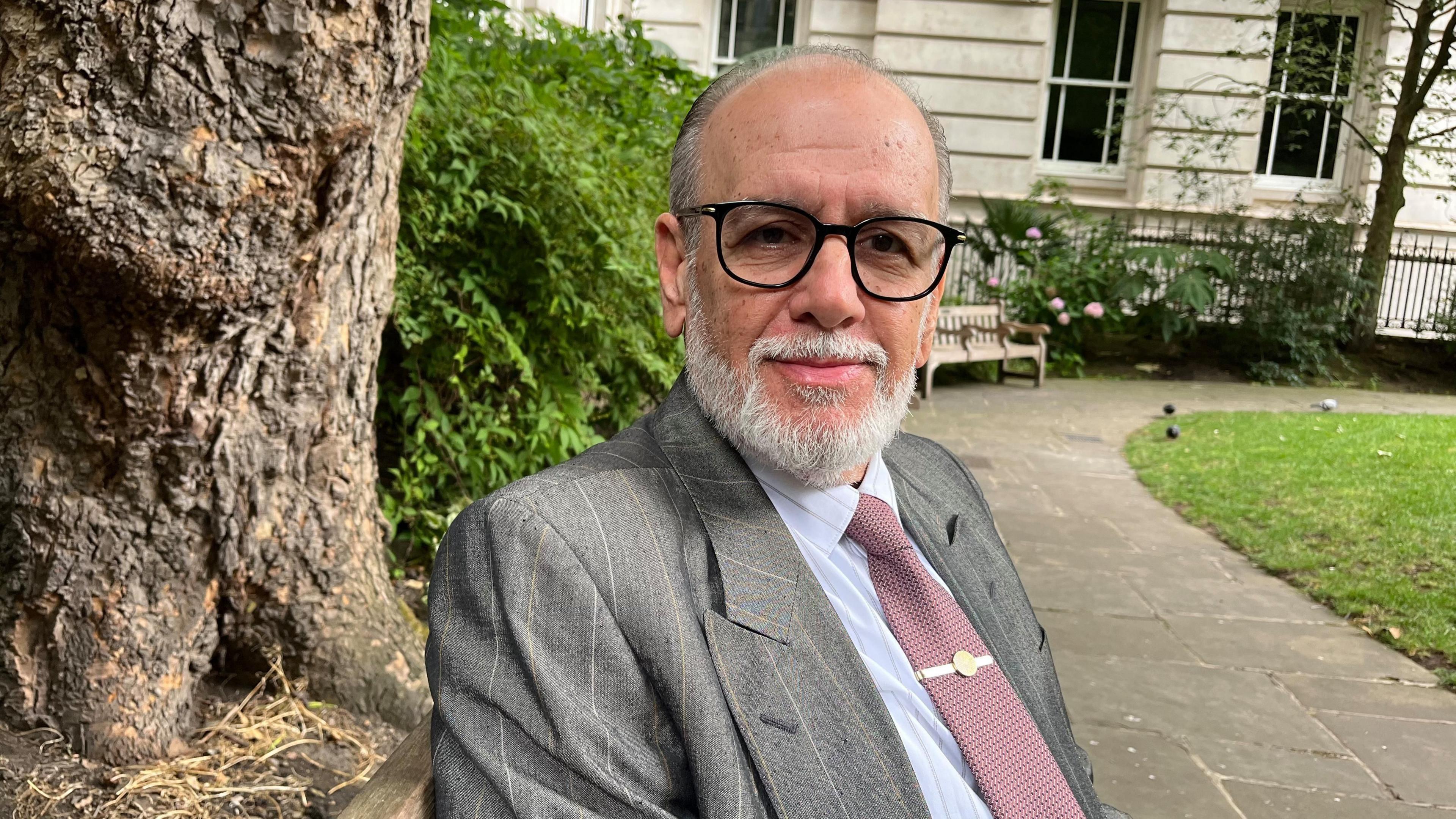
George Psaradakis has returned to London to be part of the Commemoration services
- Published
George Psaradakis, partway through his bus route in central London on a summer's morning, was happily thinking about the city's successful bid to host the 2012 Olympics.
He could hear his passengers chatting about it too, contributing to a general air of optimism on the number 30 service.
In a matter of minutes, 13 of those passengers would be dead.
Mr Psaradakis turned into Tavistock Square, and the bus was ripped apart by a bomb.
Now 70, the Greek-born Londoner, who was uninjured in the blast, remembers a "macabre day, a gruesome day".
"Many innocent people lost their lives in such a barbaric way."
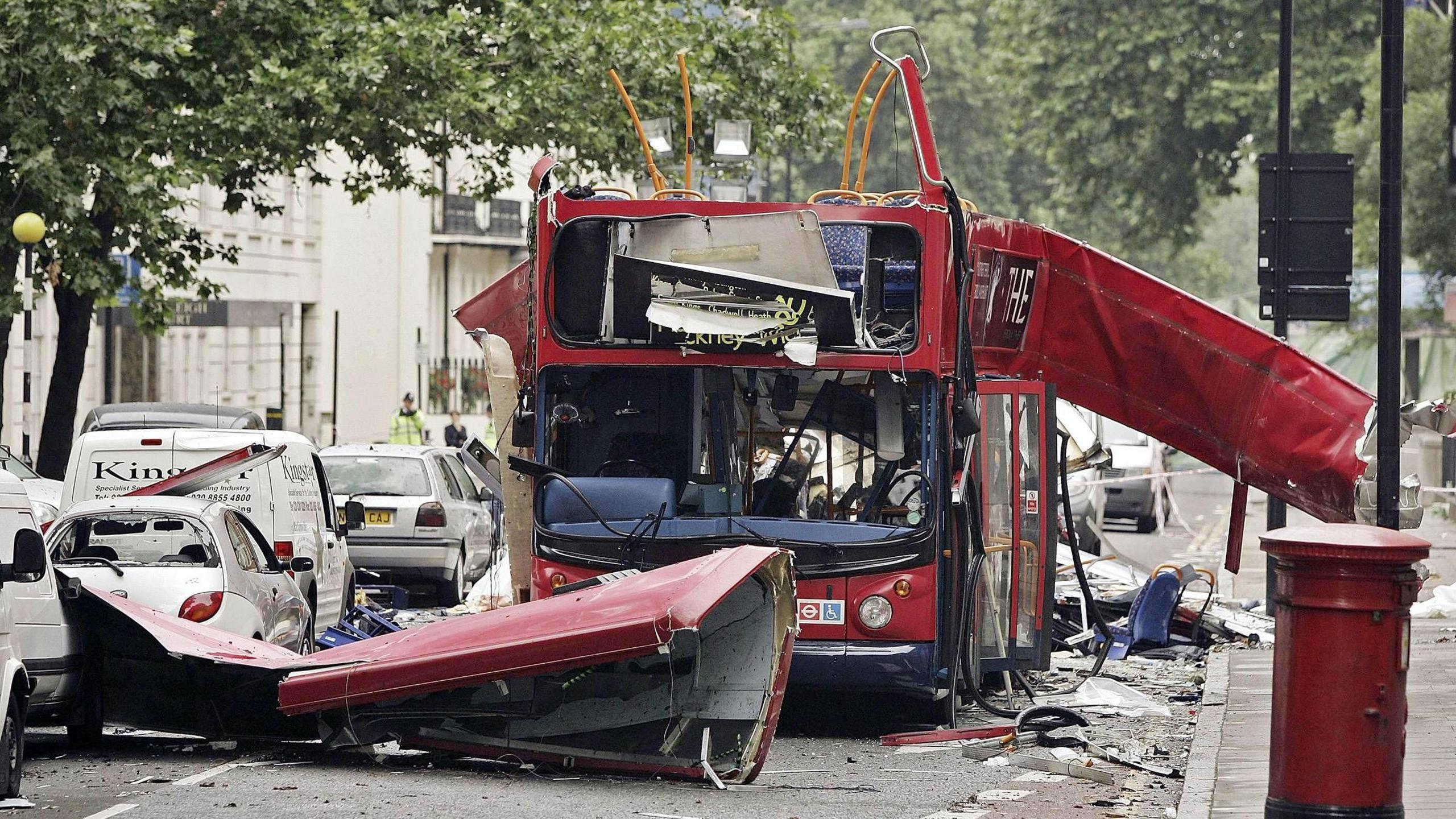
A device exploded on the 30 bus that had been diverted via Tavistock Square.
A series of bombs were detonated on London's public transport system during the morning rush hour on 7 July 2005, killing 52 people and injuring more than 770.
Three of the blasts happened on the London Underground in the vicinity of Aldgate, Edgware Road and Russell Square stations.
The disruption led to people who would ordinarily travel by Tube taking the number 30 bus, which had been re-routed via Tavistock Square.
The vehicle was so crowded Mr Psaradakis opened the doors and suggested passengers who didn't have far to go should get off and walk.
The fourth device exploded at 09:47 BST on the bus.
Thirteen people were killed and more than 100 injured in that bombing.
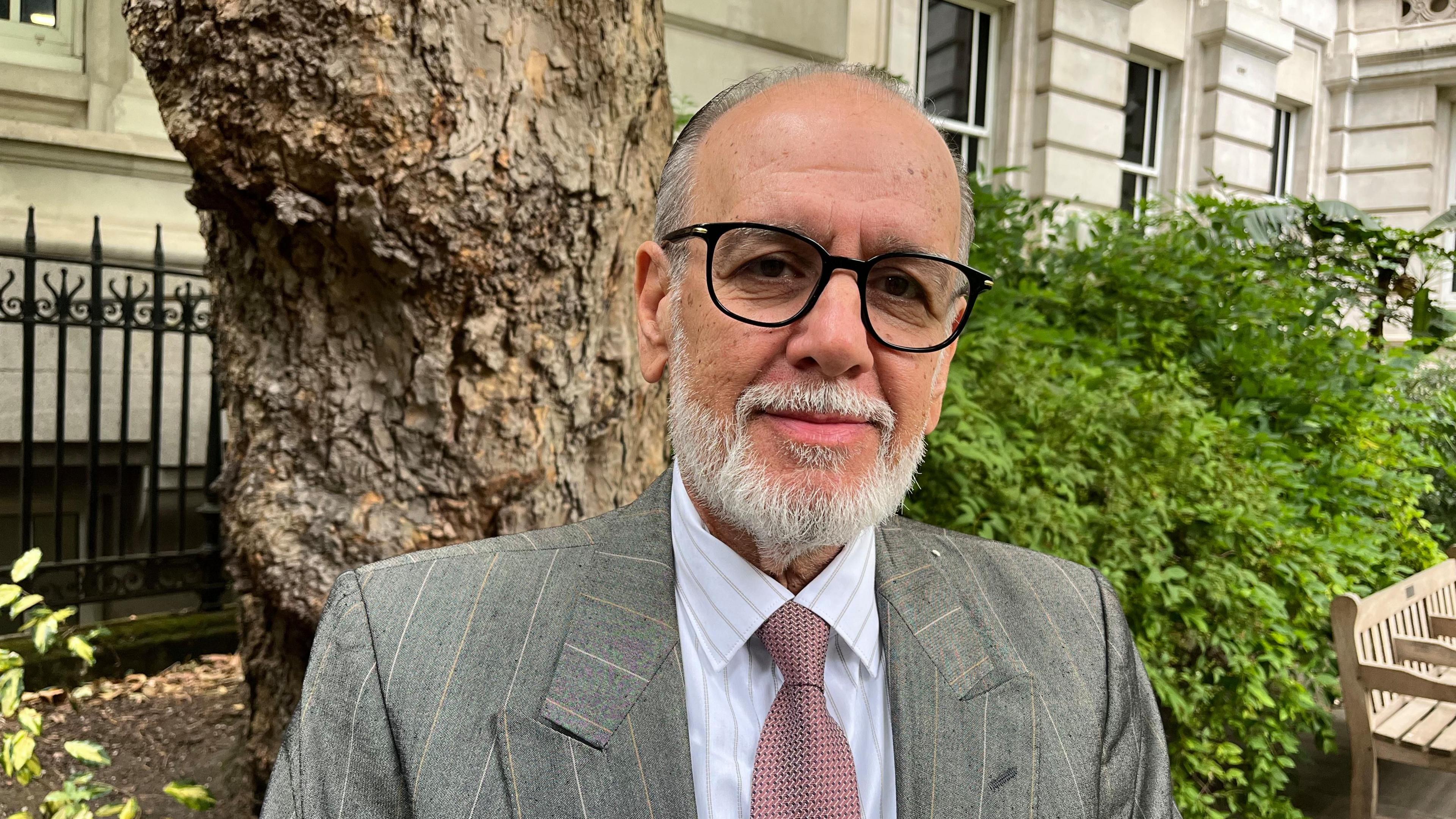
George Psaradakis was driving the 30 bus in Tavistock square
Mr Psaradakis survived the blast physically unharmed but witnessing such horror has taken a toll.
He has recently left London and retired to Cyprus but he has returned to the city on the 20th anniversary of the bombings, to pay his respects to those who died.
He says it is important London remembers.
"Every July it comes to my mind, all those sad memories.
"But coming to England and participating in the memorial makes me happy to participate.
"I think we have to commemorate them."
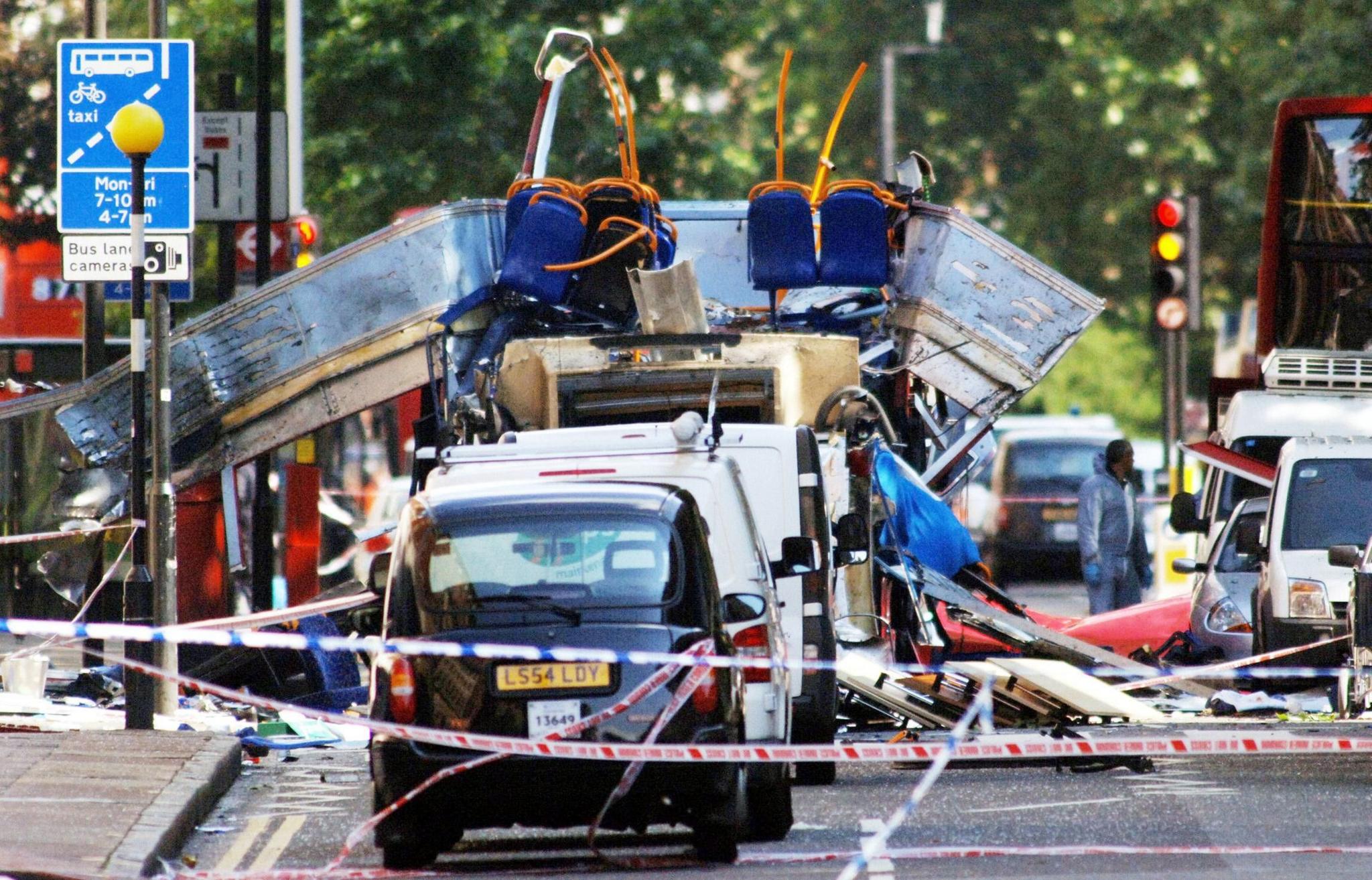
Thirteen people were killed and more than 100 injured in Tavistock Square
Mr Psaradakis's message to Londoners is one of reconciliation and remembering the acts of heroism and kindness.
"We mustn't use hatred to do things like these bombings. We mustn't do that.
"What have the terrorists achieved? When the terrorist went on my bus, he condemned himself.
"He beheaded himself and by doing that inhuman crime he killed all those innocent fellow human beings.
"Instead of hating one another, we should love one another. It was inhuman.
"But at the same time there was lots of humanity."
'Their souls are alive'
Mr Psaradakis has taken comfort from his Christian Orthodox faith, and prays every day for those who died.
"Londoners, we have to remember them, to come to Hyde Park and Tavistock Square.
"We must remember all those innocent people who lost their lives," he said.
"Their souls - they are alive. For me, I believe they are in the arms of God in paradise."
Related topics
- Published4 July
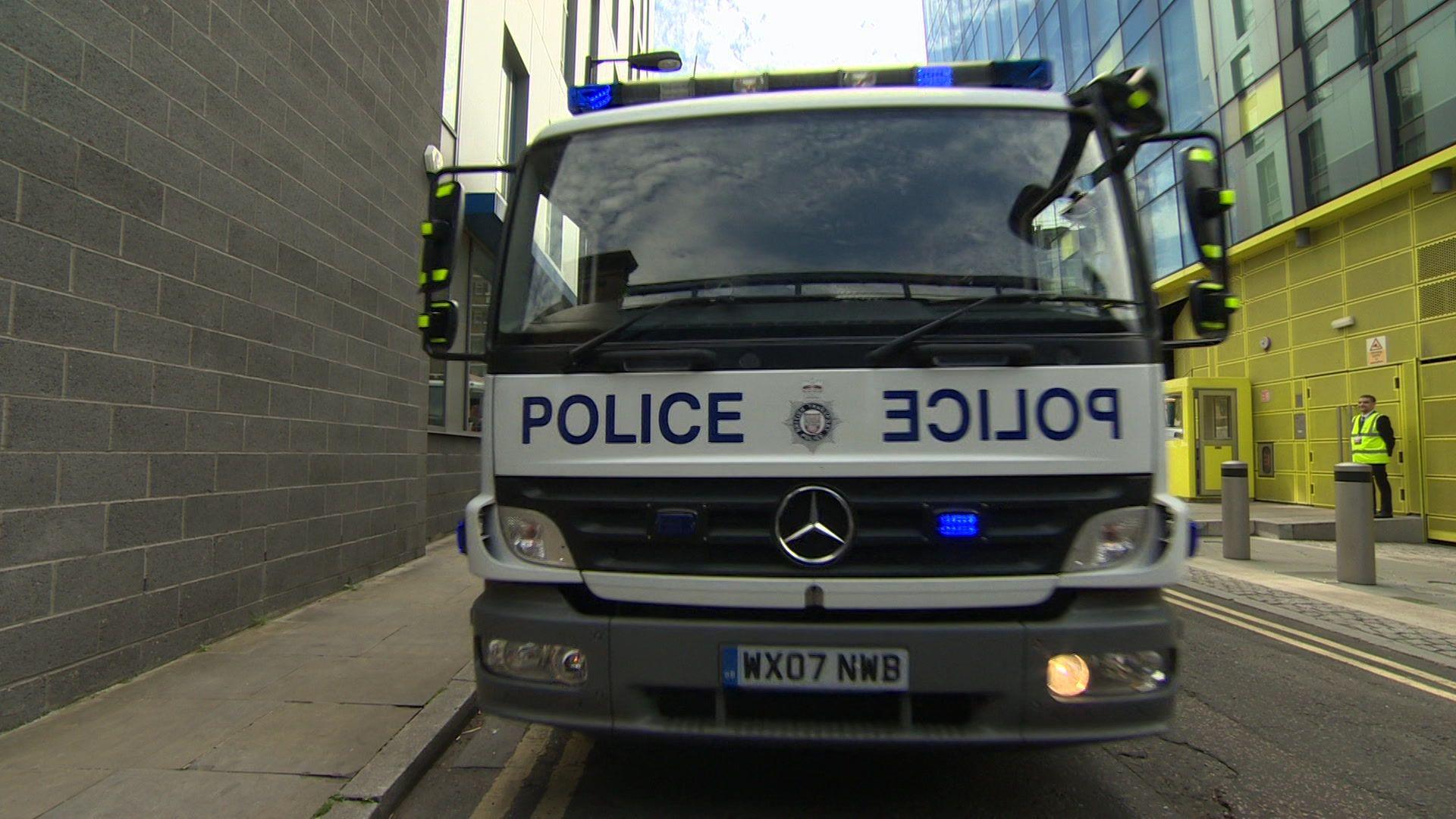
- Published4 July
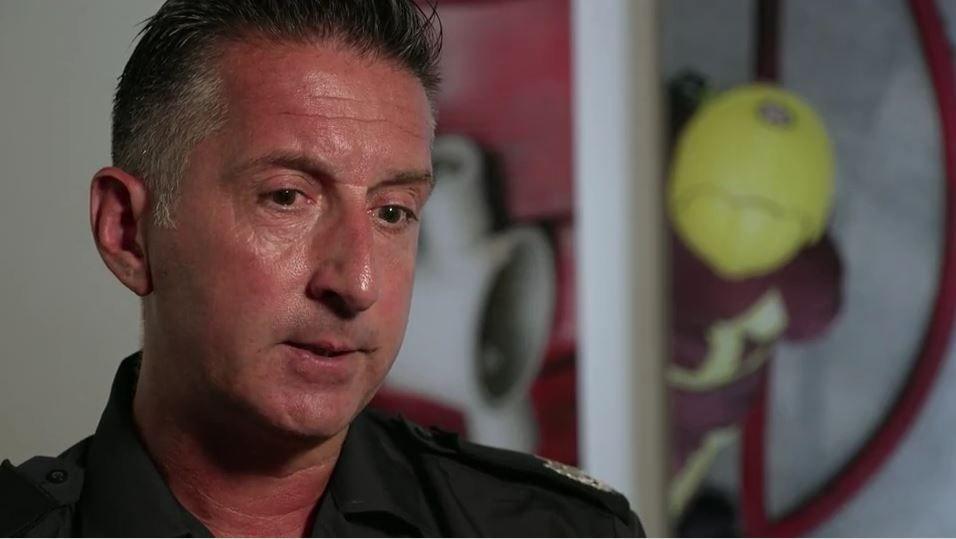
- Published14 January 2011
